- Home
- Dan Abnett
I am Slaughter
I am Slaughter Read online
Fire sputters… The shame of our deaths and our heresies is done. They are behind us, like wretched phantoms. This is a new age, a strong age, an age of Imperium. Despite our losses, despite the fallen sons, despite the eternal silence of the Emperor, now watching over us in spirit instead of in person, we will endure. There will be no more war on such a perilous scale. There will be an end to wanton destruction. Yes, foes will come and enemies will arise. Our security will be threatened, but we will be ready, our mighty fists raised. There will be no great war to challenge us now. We will not be brought to the brink like that again…
One
Ardamantua, 544.M32
The Chromes were relatively easy to kill, but they came in ferocious numbers.
Eight walls of Imperial Fists boxed one of their primary family groups into a scrub-sided valley east of the blisternest, and reduced them to burned shells and spattered meat.
Smoke rose off the hill of dead. It was a yellowish air-stain composed of atomised organic particulates and the backwash of fyceline smoke. According to the magos biologis sent to assist the undertaking, sustained bolter and las-fire, together with the chronic impact trauma of blade and close-combat weapons, had effectively aerosolised about seven per cent of the enemy’s collective biomass. The yellow smoke, a cloud twenty kilometres wide and sixty long, drained down the valley like a dawn fog.
The magos biologis told Koorland this as if the fact had some practical application. Koorland, second captain of Daylight Wall Company, shrugged. It was a non-fact to him, like someone saying the shape of a pool of spilled blood resembled a map of Arcturus or Great-Uncle Janier’s profile. Koorland had been sent to Throne-forsaken Ardamantua to kill Chromes. He was used to killing things. He was good at it, like all his company brothers and like every brother of the shield-corps. He was also used to the fact that when things were killed in colossal numbers, it left a mess. Sometimes the mess was smoke, sometimes it was liquid, sometimes it was grease, sometimes it was embers. He didn’t need some Terra-spire expert telling him that he and his brothers had pounded the Chromes so hard and so explosively that they had vaporised part of them.
The magos biologis had a retinue of three hundred acolytes and servitors. They were hooded and diligent, and had decorated the hillside with portable detection equipment and analysis engines. Tubes sniffed the air (this, Koorland understood, was how the magos biologis had arrived at his seven per cent revelation). Picting and imaging devices recorded the anatomies of dead and living Chrome specimens alike. Dissections were underway.
‘The Chromes are not a high-factor hostile species,’ the magos told Koorland.
‘Really?’ Koorland replied through his visor speakers, obliged to listen to the report.
‘Not at all,’ the human said, shaking his head, apparently under the impression that Koorland’s obligation was in fact interest. ‘See for yourself,’ he said, gesturing to a half-flayed specimen spread-eagled on a dissection stand. ‘They are armoured, of course, around the head, neck and back, and their forelimbs are well formed into digital blades–’
‘Or “claws”,’ said Koorland.
‘Just so,’ the magos went on, ‘especially in sub-adult and adult males. They are not harmless, but they are not a naturally aggressive species.’
Koorland thought about that. The Chromes – so called because of the silvery metallic finish of their chitin armour – were xenosbreed, human-sized bugs with long forelimbs and impressive speed. He thought about the eighteen million of them that had swarmed the valley that afternoon, the sea of silver gleaming in the sunlight, the swish of their bladed limbs, the tek-tek-tek noise they made with their mouthparts, like broken cogitators. He thought of the three brothers he’d lost from his wall during the initial overwhelm, the four taken from Hemispheric Wall, the three from Anterior Six Gate Wall.
Go tell them not naturally aggressive.
The Chromes had numbers, vast numbers. The more they had killed, the more there were to kill. Sustained slaughter was the only operational tactic: keep killing them until they were all dead. The rate at which the Imperial Fists had been required to hit them, the duration, the frenzy – no damn wonder they aerosolised seven per cent of their biomass.
‘Chromes have been encountered on sixty-six other worlds in this sector alone,’ said the magos biologis. ‘Twenty-four of those encounters took place during compliance expeditions at the time of the Great Crusade, the rest since. Chromes have been encountered in large numbers, and have often defended themselves. They have never been known to behave with such proactive hostility before.’
The magos thought about this.
‘They remind me of rats,’ he said. ‘Rad-rats. I remember there was a terrible plague of them down in the basements and sub-basements under the archive block of the Biologis Sanctum at Numis. They were destroying valuable specimens and records, but they were not, individually, in any way harmful or dangerous. We sent in environmental purge teams with flame guns and toxin sprays. We began to exterminate them. They swarmed. Fear, I suppose. They came flooding out of the place and we lost three men and a dozen servitors in the deluge. Unstoppable. Like the sub-hive rats, the Chromes have never behaved this way before.’
‘And they won’t again,’ said Koorland, ‘because when we’re finished here they’ll all be dead.’
‘This is just one of a possible nineteen primary family groups,’ said the magos biologis. He paused. Koorland knew that the magos intended to address him by name, but, like so many humans, he found it difficult to differentiate between the giant, transhuman warriors in their yellow armour. He had to rely on rank pins, insignia and the unit markings on shoulderplates, and that information always took a moment to process.
The magos biologis nodded slightly, as if to apologise for the hesitation.
‘–Captain Koorland of the Second Daylight Wall–’
‘I’m second captain of the Daylight Wall Company,’ Koorland corrected.
‘Ah, of course.’
‘Forget about rank, just try to remember us by our wall-names.’
‘Your what?’
Koorland sighed. This man knew more than seemed healthy about xenosbreeds, but he knew nothing about the warriors built to guard against them.
‘Our wall-names,’ he said. ‘When we are inducted, we forget our given names, our pre-breed names. Our brothers bestow upon each of us a name that suits our bearing or character: a wall-name.’
The magos nodded, politely interested.
Koorland gestured to a Space Marine trudging past them.
‘That’s Firefight,’ he said. ‘That brother over there? He’s Dolorous. Him there? Killshot.’
‘I see,’ said the magos biologis. ‘These are earned names, names within the brotherhood.’
Koorland nodded. He knew that, at some point, he’d been told the magos biologis’ name. He hadn’t forgotten because it was complicated, he just hadn’t cared enough about the human to remember it.
‘What is your name, captain?’ the magos asked brightly. ‘Your wall-name?’
‘My name?’ Koorland replied. ‘I am Slaughter.’
Two
Ardamantua
In less than six solar hours, they were back in combat.
A filthy dusk had settled over the landscape. In the reddish haze of the sky, the low-anchored bulks of their barges hung like oblong, tusk-prowed moons. The Chapter Master had ordered over ninety per cent of the Fists’ strength out on this undertaking. It was a huge show of force. Too much, in Slaughter’s opinion. But it was political too. The Adeptus Astartes were very good at prosecuting and finishing wars. Whenever extended periods of peace broke out, es
pecially in the exalted systems and holdings around the Terran Core, it became harder to justify the sheer might of a standing army like the Imperial Fists. It was good to get them out, to give them purpose, to chalk up a staggering victory that the core system populations could celebrate. The extermination of a xenosbreed threat like the Chromes was ample justification for such lethal institutions as the Imperial Fists.
Strategic surveys put the Chrome numbers at something in the order of eighty-eight billion, and migratory scans showed a pronounced in-curve diaspora towards the core worlds. Besides, Ardamantua, Throne-forsaken Ardamantua, was just six warp-weeks from Solar Approach.
Since the very earliest ages of the Imperium, the Imperial Fists had been the primary defenders of Terra. Other Chapters – Legions, as they had been known, until the Great Heresy and the instigation of the Codex – might crusade, explore or take war to the furthest corners of Imperial space. But the Imperial Fists were the primary guardians of Terra and the core. This was what they had always done. This was the duty their beloved Primarch-Progenitor had charged them with when he had left them.
It was their legacy.
Surface scans had shown another Chrome family group of significant size moving around the blisternest. Daylight Wall had led the way across the river, with two walls at their heels and another crossing further up. The river was broad but slow and heavy, no more than waist-deep, and muddy. The brackish water fumed with insects.
The Chromes started to resist when they saw the Imperial Fists wading out to the nest side. Some plunged into the water and attempted to attack. Shooting began, brothers firing from the soupy water, pushing the foe back, driving the Chromes up the claggy banks even as the xenos gathered in greater numbers to plunge in. The enemy became agitated. The slow tide was soon full of Chrome corpses, spinning end to end as they drifted downstream. The Imperial Fists advance seemed almost sullen; they came slowly, trudging through the stinking water, firing because they had to at targets too ridiculously easy to hit.
Slaughter roused his men. If they were going to engage, they were going to do it with dignity. They were coming up the bank, approaching the huge, septic shape of the blisternest rim.
‘Daylight Wall stands forever,’ he voxed. ‘No wall stands against it. Bring them down.’
The men of the company clashed their boltguns and their broadswords against their combat shields and chanted the refrain back. The advance began to accelerate.
A wall of men. A wall of supermen.
Slaughter reached the bank. It was a steep, slick mire threaded with coarse vegetation. Glinting in the smoky light, Chromes bounded down onto the ridges, rising up into threat postures and challenging him. He came out of the water, oily green moisture trailing off his yellow armour. Frenzy was at his left hand, Heartshot was at his right.
The first of the Chromes came at him.
Slaughter’s broadsword was a two-handed power blade with a silver cross-hilt and a black pommel. It had fought at Terra, during the Siege, in the hands of a Fist called Emetris, who had fallen there. It was as broad as a standard human male’s thigh. He brought it up and it described an arc in the air as the first Chrome leapt. It split the xenos through its gleaming bio-armour and cut it in two. Ichor showered in all directions. A second sprang, and he smashed it aside, slashed open. A third met the blade, impaled itself, and thrashed wildly until he ripped the sword back out.
It was just the beginning. They started to rush. A dozen, two dozen, all at once. Slaughter liked sword-work. It was economical. It saved munitions for more significant moments. The broadsword was a finely balanced instrument in his huge hands. The two-handed grip could turn and shear each swing in a surprisingly subtle number of ways.
Slaughter began to slaughter.
He left a trail of dead behind him: ruptured silver husks weeping ichor into the matted, trampled vegetation. Each step was an impact as another two or three Chromes came at him and were met by the brute, full-stop force of his blade. Organic debris flew from each killstroke. Ichor and other xenos fluids squirted high into the air and dappled his armour like dew, like rain.
Frenzy tore through the stand of dry weeds to his left, swinging an axe that had been the proud possession of a series of Fists since before the Great Crusade. The curve of its bite had been notched by the skull of a green warboss during the Malla Vajjl compliance. Frenzy, a big-hearted generous man, possessed particularly acute hand-eye coordination. His movements were so fast and precise, they seemed almost random. He had earned his wall-name through his grace on the field, the constant motion, the changing grips, the reversals, the back-steps, the aggression. His axe moved from grip to grip like a baton or a staff whirled by some ceremonial parade-ground officer. It seemed to fly from his hand many times as he turned and changed position, but it never left him. Like Slaughter, he had eschewed his bolter for the clearance work.
Slaughter wished he could stop and admire the battle-craft of his friend and brother, but there was no opportunity. The enemy’s numbers were increasing.
To Slaughter’s right, tearing through the reed beds and the dried mucus walls of the blisternest edges, came Heartshot and Chokehold. Heartshot’s rotary cannon made a metallic din like a stamp-press forge at full production. Chokehold’s bolter exploded two or sometimes three charging Chromes with each shell.
Slaughter barked orders, kept the line firm. He didn’t want over-step. He didn’t want the Chromes to find a way in through any gap in their line. Heartshot and Chokehold moved ahead fast, cutting their path with firepower. He had to keep them leashed.
He called out wall-names – Cleaver, Arm’s Length, Coldeye, Lifetaker, Bleedout – and urged them in at the back, ordering them through the reed beds to fill and cover.
His head snapped around from a sideways blow. He smelled blood in his nose, blood that clotted instantly. A screamer alert sang in his helm and his visor display blinked up mottled damage patterns.
He recovered. This took less than a second. One of the big adults had raked his head with a forelimb claw. He’d taken his eye off the fight for a micro-moment to check the line.
His sword killed the thing for its insult and for the scratch it left in the yellow surface of his helm. But there was another at its heels, an even bigger adult. It was two-thirds his size. He hadn’t seen Chromes this big before. Its appearance was different too. It was not chrome or silvery. Its chitin and armour, and its claws, seemed resiny black and brown, as if made from a horny bark that was still growing.
It ripped his chestplate. Slaughter got his shield in the way, took off its limb mid-forearm, and then reversed his blade and killed it.
Two strokes for one kill. Inefficient.
The thing had been big. It had required the extra effort.
Another large, dark form appeared, and then two more. What were they? A sub-species? A larger, more aggressive form of the basic Chrome xenotype?
Slaughter’s helm was alive with vox-chatter reports from across the offensive, all describing the same new type: larger, darker, bigger, stronger, harder to kill.
Tactical re-evaluation. Slaughter started to issue advisories even as he met the next of the new kind. Two strokes to kill one, three to finish the next. More gouges down to bare metal on his armour.
Why would any force, any species, keep its largest and strongest warrior-forms in reserve? Why would they not send them out into open combat? They might have halted or driven back the Adeptus Astartes’ attack long before they had cut their way to the blisternest.
The tek-tek-tek noise the Chromes made with their mouthparts, that malfunctioning data-engine clatter, was changing. The bigger, darker warrior-forms made a lower, duller noise, a clack-clack-clack. Two brothers in the line had already fallen to their superior power and savagery.
‘Do we fall back?’ Frenzy voxed. ‘Slaughter, do we break and regroup? This is new. This is–’
‘Hold the line,’ Slaughter replied. ‘No regroup. No fall back. Hold the line. Daylight Wall stands forever. No wall stands against it. Bring them down.’
‘Understood.’
Frenzy’s unquestioning understood was instantly echoed by a hundred voxed voices.
Slaughter ducked a slashing brown claw the size of Frenzy’s axe-head. He was smiling.
He had made a realisation. He knew what this was.
They are us. They are Daylight Wall.
The blisternest was the Chromes’ Palace of Terra. They had kept their bravest and best and mightiest warriors in reserve to defend it, in case an enemy ever got through.
This was their last ditch. Their last stand. This was their final wall, their do or die.
The Imperial Fists were just hours away from completing their undertaking to Ardamantua and adding another proud tally to their glory roll.
This was the bloody endgame, and it would be a battle to relish.
‘Hold the line,’ Slaughter ordered. Then, as a practical afterthought, he added, ‘Use your bolters.’
Three
Terra – the Imperial Palace
The air was smoke.
In preparation for the midday Senatorum meeting, servitors had lit the burners in the upper galleries and the approach halls, and in the alcoves along the Walk of Heroes, whose great leaded windows, miraculously spared by the pounding overpressure of the Siege, had looked out onto the stately yards behind Eternity Gate for two dozen centuries.
The burners fumed with camphor and septrewood, rose-ash and parvum, the sacred incense of the Saviour Emperor, thought to smell exactly like the incorruptible sanctity of His Eternal Form.
Vangorich couldn’t attest to this. Given his office as a Grand Master, he might have requested, and even been granted, the chance to show observance at the foot of the Golden Throne. He had never bothered. The dead did not interest him, not even the divine dead. What interested him – obsessed him – were the mechanisms by which things became dead, and the opportunities those deaths afforded the living.

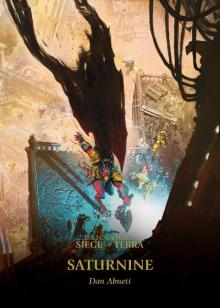 Saturnine
Saturnine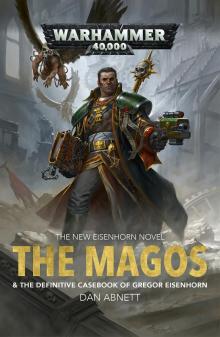 The Magos
The Magos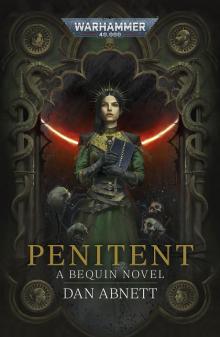 Penitent
Penitent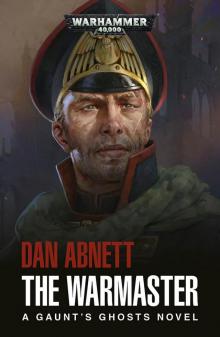 THE WARMASTER
THE WARMASTER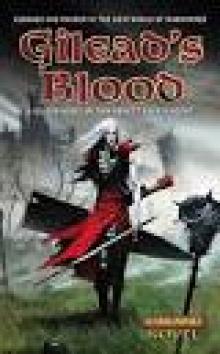 Gilead's Blood
Gilead's Blood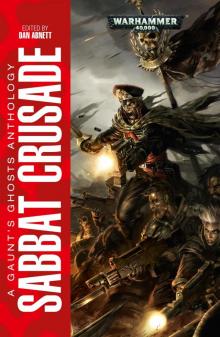 Sabbat Crusade
Sabbat Crusade![[Warhammer 40K] - Double Eagle Read online](http://i1.bookreadfree.com/i/03/16/[warhammer_40k]_-_double_eagle_preview.jpg) [Warhammer 40K] - Double Eagle
[Warhammer 40K] - Double Eagle![[Gaunt's Ghosts 02] - Ghostmaker Read online](http://i1.bookreadfree.com/i/03/16/[gaunts_ghosts_02]_-_ghostmaker_preview.jpg) [Gaunt's Ghosts 02] - Ghostmaker
[Gaunt's Ghosts 02] - Ghostmaker![[Gaunt's Ghosts 10] - The Armour of Contempt Read online](http://i1.bookreadfree.com/i/03/16/[gaunts_ghosts_10]_-_the_armour_of_contempt_preview.jpg) [Gaunt's Ghosts 10] - The Armour of Contempt
[Gaunt's Ghosts 10] - The Armour of Contempt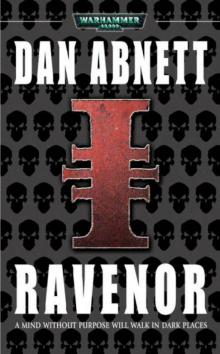 Ravenor
Ravenor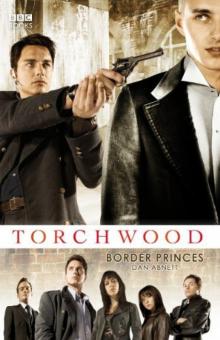 Border Princes
Border Princes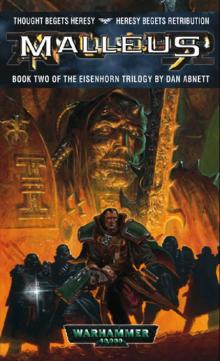 Warhammer - Eisenhorn 02 - Malleus (Abnett, Dan)
Warhammer - Eisenhorn 02 - Malleus (Abnett, Dan)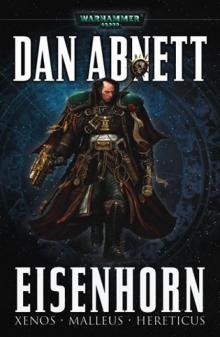 Eisenhorn Omnibus
Eisenhorn Omnibus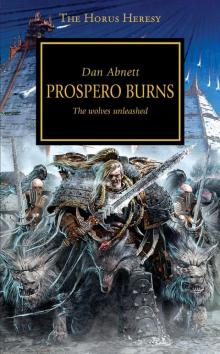 Prospero Burns
Prospero Burns The Story of Martha
The Story of Martha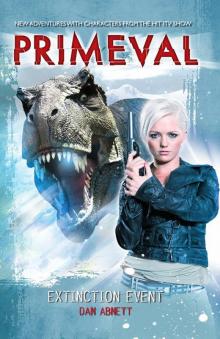 Extinction Event
Extinction Event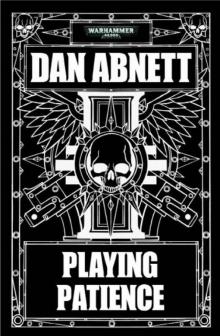 Playing Patience
Playing Patience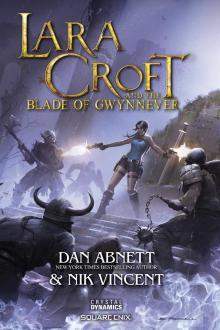 Lara Croft and the Blade of Gwynnever
Lara Croft and the Blade of Gwynnever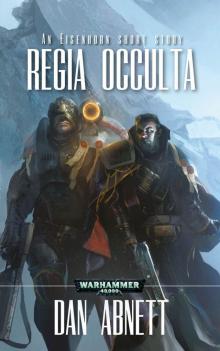 Regia Occulta
Regia Occulta![[Gaunt's Ghosts] - The Iron Star Read online](http://i1.bookreadfree.com/i/03/13/[gaunts_ghosts]_-_the_iron_star_preview.jpg) [Gaunt's Ghosts] - The Iron Star
[Gaunt's Ghosts] - The Iron Star![[Warhammer] - Fell Cargo Read online](http://i1.bookreadfree.com/i/03/13/[warhammer]_-_fell_cargo_preview.jpg) [Warhammer] - Fell Cargo
[Warhammer] - Fell Cargo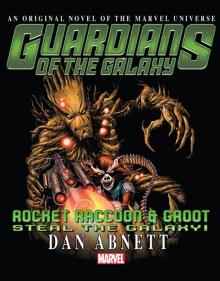 GUARDIANS OF THE GALAXY: ROCKET RACCOON & GROOT STEAL THE GALAXY!
GUARDIANS OF THE GALAXY: ROCKET RACCOON & GROOT STEAL THE GALAXY!![[Ravenor 01] Ravenor - Dan Abnett Read online](http://i1.bookreadfree.com/i/03/20/[ravenor_01]_ravenor_-_dan_abnett_preview.jpg) [Ravenor 01] Ravenor - Dan Abnett
[Ravenor 01] Ravenor - Dan Abnett![[Gaunt's Ghosts 06] - Straight Silver Read online](http://i1.bookreadfree.com/i/03/17/[gaunts_ghosts_06]_-_straight_silver_preview.jpg) [Gaunt's Ghosts 06] - Straight Silver
[Gaunt's Ghosts 06] - Straight Silver![[Ravenor 02] Ravenor Returned - Dan Abnett Read online](http://i1.bookreadfree.com/i/03/20/[ravenor_02]_ravenor_returned_-_dan_abnett_preview.jpg) [Ravenor 02] Ravenor Returned - Dan Abnett
[Ravenor 02] Ravenor Returned - Dan Abnett![[Gaunt's Ghosts 08] - Traitor General Read online](http://i1.bookreadfree.com/i/03/14/[gaunts_ghosts_08]_-_traitor_general_preview.jpg) [Gaunt's Ghosts 08] - Traitor General
[Gaunt's Ghosts 08] - Traitor General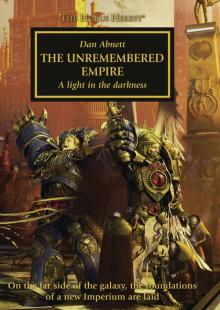 The Unremembered Empire
The Unremembered Empire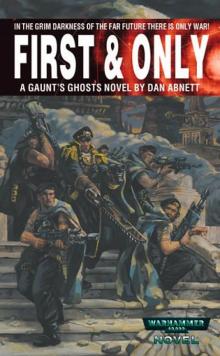 First and Only
First and Only![[Darkblade 05] - Lord of Ruin Read online](http://i1.bookreadfree.com/i/03/15/[darkblade_05]_-_lord_of_ruin_preview.jpg) [Darkblade 05] - Lord of Ruin
[Darkblade 05] - Lord of Ruin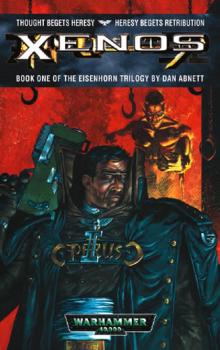 Warhammer - Eisenhorn 01 - Xenos (Abnett, Dan)
Warhammer - Eisenhorn 01 - Xenos (Abnett, Dan) Meduson
Meduson The Fall of Malvolion
The Fall of Malvolion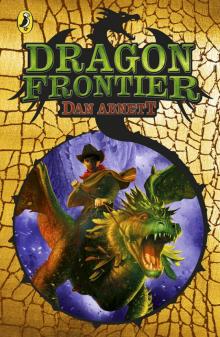 Dragon Frontier
Dragon Frontier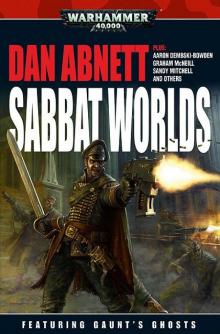 Sabbat Worlds
Sabbat Worlds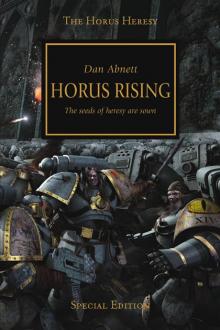 Horus Rising
Horus Rising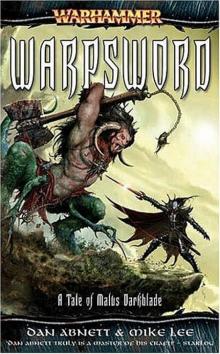 Warhammer - Darkblade 04 - Warpsword
Warhammer - Darkblade 04 - Warpsword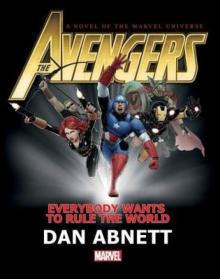 Avengers_Everybody Wants to Rule the World_Marvel Comics Prose
Avengers_Everybody Wants to Rule the World_Marvel Comics Prose![[Gaunt's Ghosts 04] - Honour Guard Read online](http://i1.bookreadfree.com/i/03/16/[gaunts_ghosts_04]_-_honour_guard_preview.jpg) [Gaunt's Ghosts 04] - Honour Guard
[Gaunt's Ghosts 04] - Honour Guard![[Darkblade 04] - Warpsword Read online](http://i1.bookreadfree.com/i/03/16/[darkblade_04]_-_warpsword_preview.jpg) [Darkblade 04] - Warpsword
[Darkblade 04] - Warpsword![[Gaunt's Ghosts 11] - Only in Death Read online](http://i1.bookreadfree.com/i/03/16/[gaunts_ghosts_11]_-_only_in_death_preview.jpg) [Gaunt's Ghosts 11] - Only in Death
[Gaunt's Ghosts 11] - Only in Death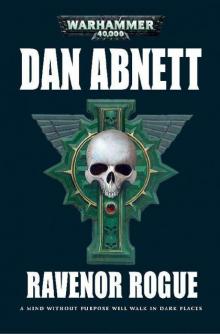 Ravenor Rogue
Ravenor Rogue![[Ravenor 03] Ravenor Rogue - Dan Abnett Read online](http://i1.bookreadfree.com/i/03/16/[ravenor_03]_ravenor_rogue_-_dan_abnett_preview.jpg) [Ravenor 03] Ravenor Rogue - Dan Abnett
[Ravenor 03] Ravenor Rogue - Dan Abnett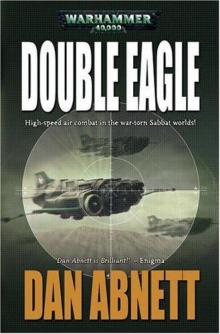 Double Eagle
Double Eagle Doctor Who - The Silent Stars Go By
Doctor Who - The Silent Stars Go By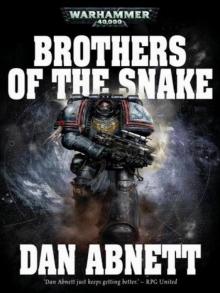 Brothers of the Snake
Brothers of the Snake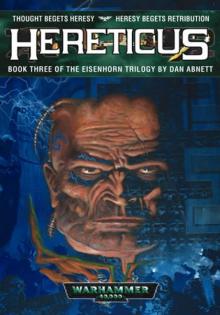 Warhammer - Eisenhorn 03 - Hereticus (Abnett, Dan)
Warhammer - Eisenhorn 03 - Hereticus (Abnett, Dan)![[Darkblade 03] - Reaper of Souls Read online](http://i1.bookreadfree.com/i/03/16/[darkblade_03]_-_reaper_of_souls_preview.jpg) [Darkblade 03] - Reaper of Souls
[Darkblade 03] - Reaper of Souls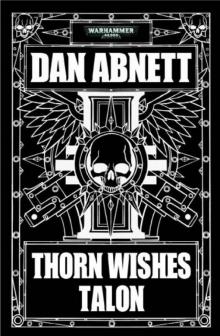 Thorn Wishes Talon
Thorn Wishes Talon Doctor Who
Doctor Who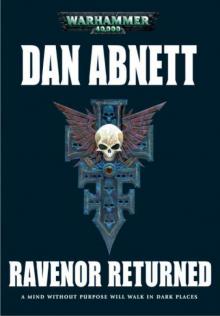 Ravenor Returned
Ravenor Returned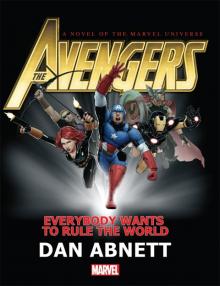 Avengers: Everybody Wants to Rule the World
Avengers: Everybody Wants to Rule the World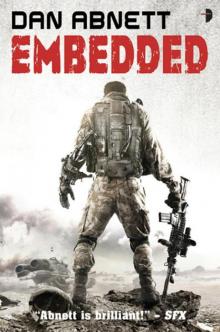 Embedded
Embedded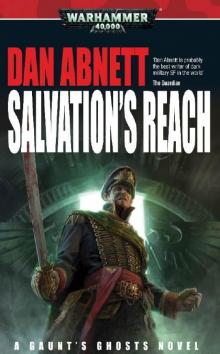 Salvation's Reach
Salvation's Reach![[Gaunt's Ghosts 03] - Necropolis Read online](http://i1.bookreadfree.com/i/03/19/[gaunts_ghosts_03]_-_necropolis_preview.jpg) [Gaunt's Ghosts 03] - Necropolis
[Gaunt's Ghosts 03] - Necropolis![[Darkblade 01] - The Daemon's Curse Read online](http://i1.bookreadfree.com/i/03/17/[darkblade_01]_-_the_daemons_curse_preview.jpg) [Darkblade 01] - The Daemon's Curse
[Darkblade 01] - The Daemon's Curse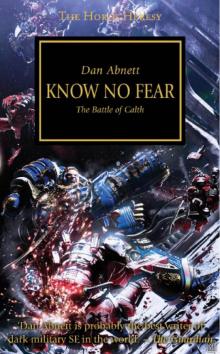 Know No Fear
Know No Fear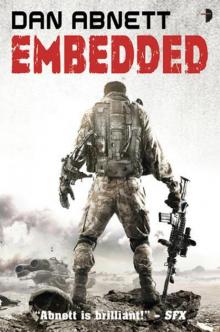 Dan Abnett - Embedded
Dan Abnett - Embedded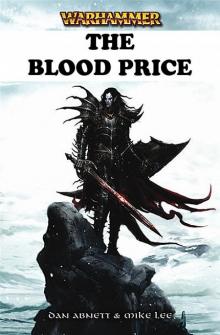 00.1 - The Blood Price
00.1 - The Blood Price![[Warhammer 40K] - Sabbat Worlds Read online](http://i1.bookreadfree.com/i/03/17/[warhammer_40k]_-_sabbat_worlds_preview.jpg) [Warhammer 40K] - Sabbat Worlds
[Warhammer 40K] - Sabbat Worlds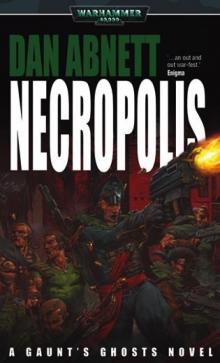 Necropolis
Necropolis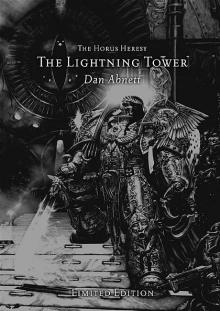 The Lightning Tower & The Dark King
The Lightning Tower & The Dark King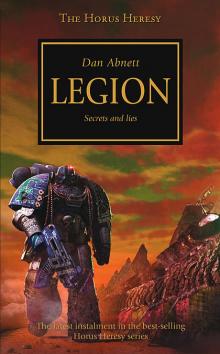 Legion
Legion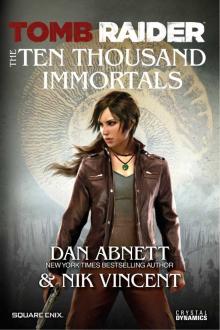 Tomb Raider: The Ten Thousand Immortals
Tomb Raider: The Ten Thousand Immortals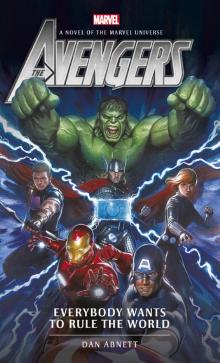 Avengers
Avengers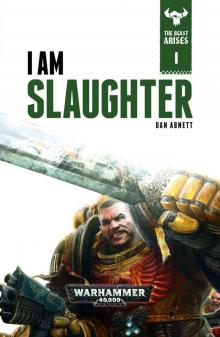 I am Slaughter
I am Slaughter![[Gaunt's Ghosts 07] - Sabbat Martyr Read online](http://i1.bookreadfree.com/i1/04/02/[gaunts_ghosts_07]_-_sabbat_martyr_preview.jpg) [Gaunt's Ghosts 07] - Sabbat Martyr
[Gaunt's Ghosts 07] - Sabbat Martyr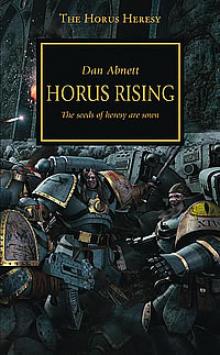 The Horus Heresy: Horus Rising
The Horus Heresy: Horus Rising![[Gaunt's Ghosts 01] - First & Only Read online](http://i1.bookreadfree.com/i1/04/02/[gaunts_ghosts_01]_-_first_&_only_preview.jpg) [Gaunt's Ghosts 01] - First & Only
[Gaunt's Ghosts 01] - First & Only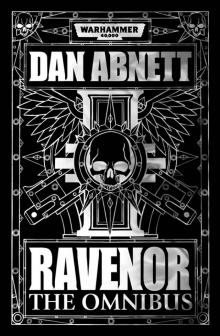 Ravenor Omnibus
Ravenor Omnibus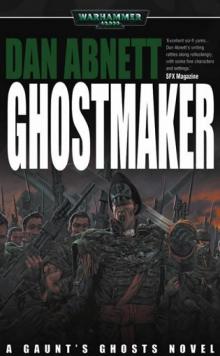 Ghostmaker
Ghostmaker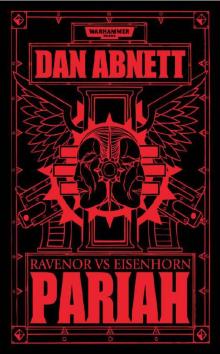 Pariah: Eisenhorn vs Ravenor
Pariah: Eisenhorn vs Ravenor![[Gaunt's Ghosts 12] - Blood Pact Read online](http://i1.bookreadfree.com/i1/04/04/[gaunts_ghosts_12]_-_blood_pact_preview.jpg) [Gaunt's Ghosts 12] - Blood Pact
[Gaunt's Ghosts 12] - Blood Pact![[Gaunt's Ghosts 05] - The Guns of Tanith Read online](http://i1.bookreadfree.com/i1/04/01/[gaunts_ghosts_05]_-_the_guns_of_tanith_preview.jpg) [Gaunt's Ghosts 05] - The Guns of Tanith
[Gaunt's Ghosts 05] - The Guns of Tanith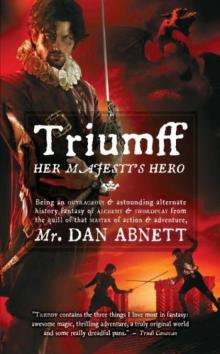 Triumff: Her Majesty's Hero
Triumff: Her Majesty's Hero![[Gaunt's Ghosts 09] - His Last Command Read online](http://i1.bookreadfree.com/i1/04/02/[gaunts_ghosts_09]_-_his_last_command_preview.jpg) [Gaunt's Ghosts 09] - His Last Command
[Gaunt's Ghosts 09] - His Last Command![[Darkblade 00.1] - The Blood Price Read online](http://i1.bookreadfree.com/i2/04/03/[darkblade_00_1]_-_the_blood_price_preview.jpg) [Darkblade 00.1] - The Blood Price
[Darkblade 00.1] - The Blood Price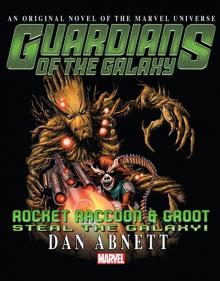 Guardians of the Galaxy: Rocket Raccoon and Groot - Steal the Galaxy!
Guardians of the Galaxy: Rocket Raccoon and Groot - Steal the Galaxy!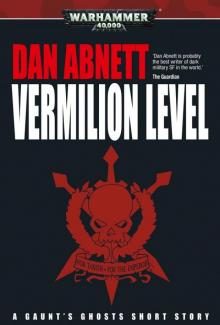 Vermilion Level
Vermilion Level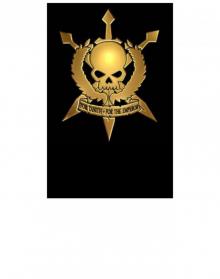 In Remembrance
In Remembrance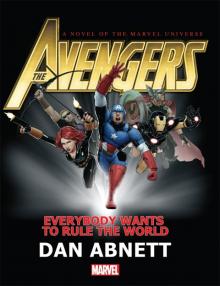 The Avengers: Everybody Wants to Rule the World
The Avengers: Everybody Wants to Rule the World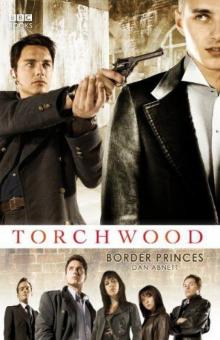 Border Princes t-2
Border Princes t-2![[Darkblade 02] - Bloodstorm Read online](http://i1.bookreadfree.com/i2/04/07/darkblade_02_-_bloodstorm_preview.jpg) [Darkblade 02] - Bloodstorm
[Darkblade 02] - Bloodstorm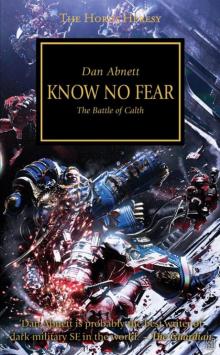 Know no fear. The Battle of Calth hh-19
Know no fear. The Battle of Calth hh-19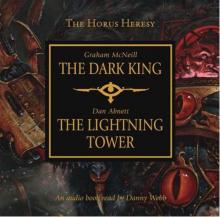 The Dark King and The Lightning Tower
The Dark King and The Lightning Tower